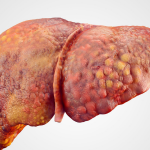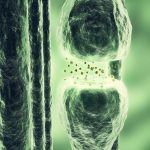Body Fat Drastically Increases Risk of Bypass Surgery
Node Smith, ND
New research presented at this year’s Euroanaesthesia congress in Vienna, Austria (1-3 June) shows that mortality in patients who had undergone heart bypass surgery was over 4 times higher in individuals with a high body fat mass, while body mass index (BMI) by itself was not associated with an increase in mortality. The research was conducted by Dr Xavier Leroy of the Department of Anaesthesia and Resuscitation, CHU Lille, Lille, France and colleagues.
Mortality 4 x higher for heart bypass recipients with high body fat mass, while (BMI) by itself was not associated with increased mortality
There is conflicting evidence about the existence of the so-called obesity paradox when it comes to cardiac surgery, which is the theory that obesity as defined by BMI may offer a protective effect to the patient and reduce their risk of post-operative mortality. The authors suggest that other factors which are known to impact clinical outcomes in a range of settings such as body composition, referring to fat mass (FM) and lean body weight (LBW), may complicate the situation and lead to the inconsistent results seen in previous research.
Retrospective study analyzed 3373 patients who had undergone elective cardiac surgery with cardiopulmonary bypass
The team performed a retrospective study of 3373 patients who had undergone elective cardiac surgery with cardiopulmonary bypass from January 2013 until December 2016. Patient BMI (measured using the WHO definition) and body composition were calculated from clinical and administrative records and compared to patient mortality within 30 days of the operation. A further analysis was performed to investigate the association of BMI and body composition with a prolonged stay in the intensive care unit (ICU), with prolonged defined as being in the uppermost quartile (patients in the highest 25%) of length of stay (LOS).
Findings
Across the entire sample of patients, mortality within 30 days occurred in 2.1% of cases and significant differences were observed among BMI, FM, and LBW categories. Unlike BMI however, FM and LBW were found to be independently associated with mortality.
The 25% (quartile) of patients with the highest fat mass (FM) were 4.1 times more likely to die than 25% with the lowest fat mass; and the 25% of patients with the lowest lean body weight (muscle) were 2.8 times more likely to die than the 25% of patients with the highest lean body weight.
Authors did find an independent association between BMI and length of stay in the ICU
There was no observed association between BMI and 30-day mortality but the authors did find an independent association between BMI and length of stay in the ICU.
The authors conclude: “BMI was independently associated with a prolonged ICU length of stay, as were being in the highest fat mass and lowest lean body weight categories,” explains Dr Leroy. “The lower the LBW or the higher the FM and BMI were, the longer the length of stay in intensive care.”
Here’s what the findings revealed
He concludes, “overall, our findings showed that unlike BMI, lower lean body weight and higher fat mass in patients were independently associated with increased mortality after heart bypass surgery.”
 Node Smith, ND, is a naturopathic physician in Humboldt, Saskatchewan and associate editor and continuing education director for NDNR. His mission is serving relationships that support the process of transformation, and that ultimately lead to healthier people, businesses and communities. His primary therapeutic tools include counselling, homeopathy, diet and the use of cold water combined with exercise. Node considers health to be a reflection of the relationships a person or a business has with themselves, with God and with those around them. In order to cure disease and to heal, these relationships must be specifically considered. Node has worked intimately with many groups and organizations within the naturopathic profession, and helped found the non-profit, Association for Naturopathic Revitalization (ANR), which works to promote and facilitate experiential education in vitalism.
Node Smith, ND, is a naturopathic physician in Humboldt, Saskatchewan and associate editor and continuing education director for NDNR. His mission is serving relationships that support the process of transformation, and that ultimately lead to healthier people, businesses and communities. His primary therapeutic tools include counselling, homeopathy, diet and the use of cold water combined with exercise. Node considers health to be a reflection of the relationships a person or a business has with themselves, with God and with those around them. In order to cure disease and to heal, these relationships must be specifically considered. Node has worked intimately with many groups and organizations within the naturopathic profession, and helped found the non-profit, Association for Naturopathic Revitalization (ANR), which works to promote and facilitate experiential education in vitalism.
Node Smith graduated from the National University of Natural Medicine (NUNM) in 2017, and is currently licensed as a naturopathic physician in Oregon and working towards becoming licensed in Saskatchewan, Canada as well.









